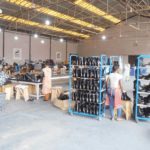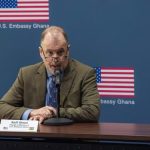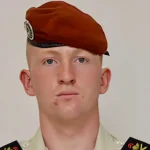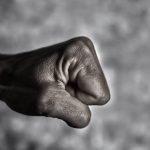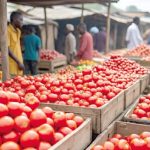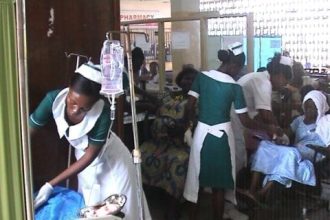“My wife and kids! I don’t want to leave them alone in this cruel world”.
The brawny, young man whose date of birth suggested he had only celebrated his 34th birthday the week prior, sobbed with a slurred speech amidst struggles to breathe. He was bedridden with a Stroke and Heart Failure. It wasn’t just him. Just a few centimetres away were a 54 year old female with Heart Failure due to Hypertensive Heart Disease; a 70 year old Diabetic whose legs had been amputated; and a 41 year old female who looked puffy and was slipping in and out of a coma because she could no longer afford the weekly 1500 Cedis needed for her dialysis sessions. She had End Stage Kidney Disease inflicted by a cocktail of Hypertension, Diabetes and years of abusing unapproved medications.
These are not made up individuals. I attended to them on the same day and continue to attend to similar cases each and every day. His sobs tore at my heartstrings. His story was familiar. His blood pressure (BP) was consistently high during a health screening in a church 2 years ago. Although the doctor prescribed medications, a colleague driver advised him not to take them, so he resorted to herbal medications. A busy work schedule also precluded him from visiting the hospital.
A garden-variety true story that sums up the obstacles in our fight against Non-Communicable Diseases (NCDs) like Hypertension and Diabetes.
According to the WHO, about 5 in 10 Africans (46%) 25 years and older have Hypertension. About half of people with Hypertension are unaware of their condition because it is a silent killer. It is estimated that 24 million adults (20-79) are living with Diabetes in Africa. This is extrapolated to increase to 33 million by 2030 and 55 million by 2045.
Many health policies, education and screening programs have been instituted over the years, but disease burden continues to be on the ascendancy. Follow up after diagnosis is a challenge and drug adherence is not guaranteed, partly and significantly because of misinformation on the side effects of drugs, and false promises of complete cure by quacks.
Why are these laudable programs failing at curbing this double menace of Hypertension and Diabetes? On-Field Life Savers (OFIS), a non-profit working to reduce the burden of NCDs in Africa, believes it is because individuals for whom these programs are designed are not actively involved in the process.
Recognizing this challenge, OFIS has rolled out an initiative called Hypertension And Diabetes Advocates (HADA) Hubs. What are HADA Hubs?
HADA Hub is a community-based approach to tackling NCDs in which individuals who meet regularly as part of an already existent social group (e.g churches, mosques, driver unions, “parliaments”etc) are trained and empowered to become Hypertension and Diabetes Advocates while making healthy living a habit. HADA Hubs generally have 7 components:
- A social group whose members are trained to measure their own BPs and blood sugars, and interpret values as normal/abnormal. They are also trained to become advocates, educating others, especially on drug adherence and healthy living. A mechanic is more likely to listen to the recommendation of a fellow mechanic on a medication and/or lifestyle that has helped him manage his Hypertension. This targets the challenge of misinformation.
- A health representative from among them who reports consistently abnormal values of members to OFIS for management.
- A BP and sugar monitoring record’s book.
- A sphygmomanometer and/or glucometer donated to the group which is always available to them. The presence of the equipment within their setting becomes a cue that encourages the habit of regularly checking and knowing their numbers.
- A HADA oath, pasted at location of meetings for members to see and recite on a regular basis. The oath is a list of practical, healthy lifestyle habits that has been translated into Gurune and is being translated into all the major dialects in Ghana.
- A medical volunteer who visits members monthly to address abnormal values, side effects of any medications started and reinforce the message of healthy living and medication adherence. Individuals who prefer herbal medications are referred to the Centre for Scientific Research into Plant Medicine whose medications have gone through the requisite trials to be considered safe and effective.
- Organizations, individuals etc that are willing to adopt these Hubs and provide sphygmomanometers, Glucometers etc. We are also working on a centralized database where BP and sugar records can be sent, stored, and accessed to inform policies and make referrals to nearby health facilities.
OFIS has successfully set up three of such Hubs across Ghana among drivers, a church and cooking staff of PRESEC-LEGON. We believe empowering lay people with the message of healthy living and taking healthcare to their workplaces is the way forward in dealing with the leading causes of death and suffering globally.
At OFIS, the mission is to reduce the burden of Hypertension and Diabetes in Africa, one HADA Hub at a time.
By: Dr. Godwin Awuni Anafo
Founder, On-Field Life Savers (Ofis)
Radio Host, Odadee Health Matters
gaawunianafo@gmail.com



